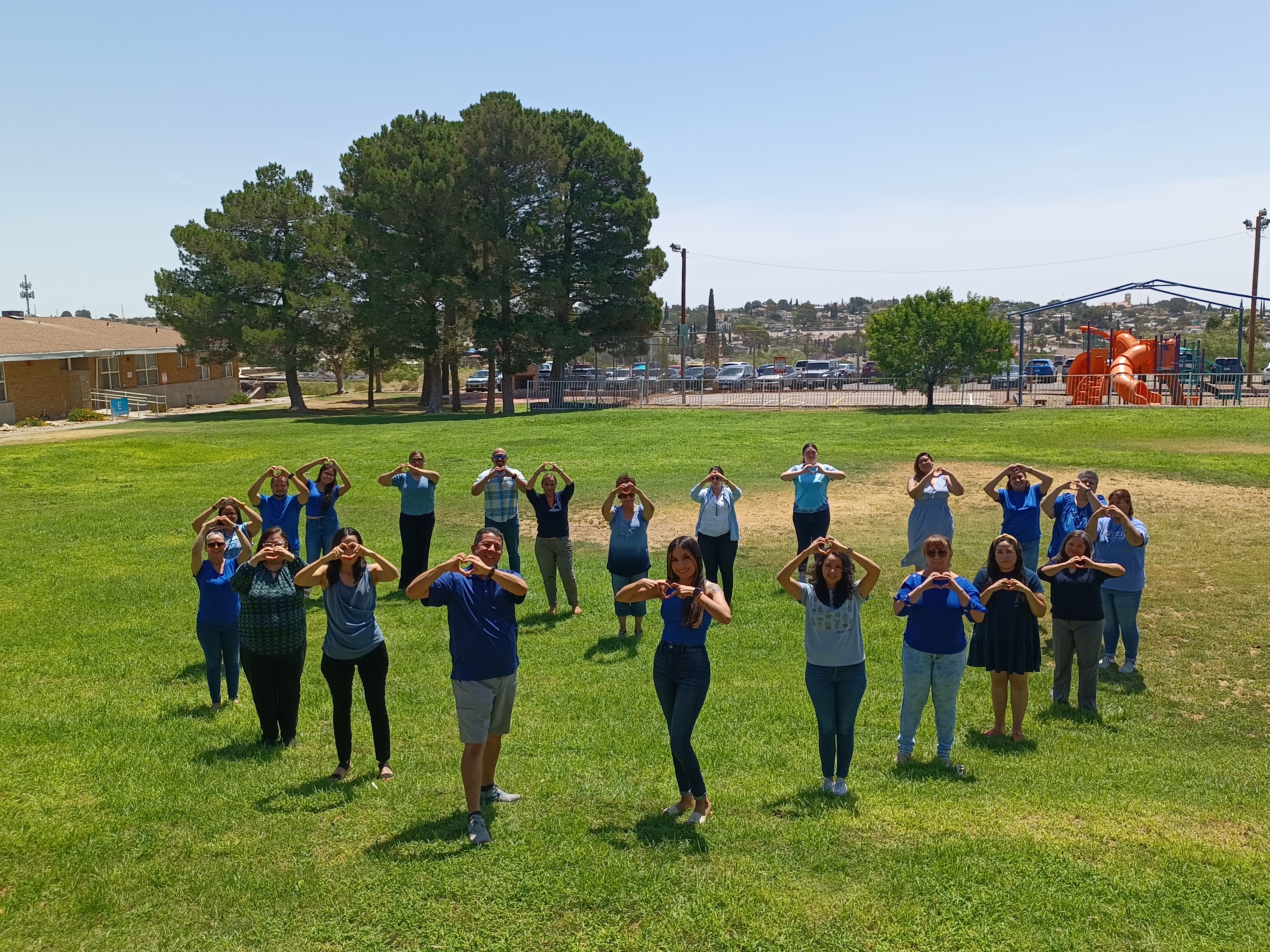
El Paso Center for Children: Empowering Families and Children
El Paso Center for Children (EPCC) has been serving the El Paso community for more than a century, offering children, youth, and families a safe place to turn in times of need. From early childhood parenting programs to emergency shelter, housing assistance, counseling, and a one-of-a-kind Drop-In Center for at-risk youth, EPCC provides a wide range of services that address both immediate and long-term needs. Every program is trauma-informed, strengths-based, and designed to build resilience in families who might otherwise face overwhelming challenges.
Kars4Kids was proud to award a small grant to El Paso Center for Children, which stood out to us because of the quality and impact of their work. We were especially impressed by the fact that EPCC offers all of its programs at no cost to families. In a community where poverty rates are high and resources are often limited, EPCC’s commitment to empowering families without charging for these vital services made this nonprofit shine as a clear choice for our support.
To learn more about this important work, we put some questions to El Paso Center for Children Chief Development Officer Adrian Duran.
Kars4Kids: To begin, could you describe the demographics of the families and youth you serve at El Paso Center for Children? What are the most pressing needs you observe within these communities?
Adrian Duran: The El Paso Center for Children, a provider of services in the El Paso community for over 100 years, has traditionally assisted low-income youth and families. We are located in El Paso, Texas, a persistent poverty area on the U.S.–Mexico border. The majority of families served are Hispanic, and all of our services are provided free of charge.
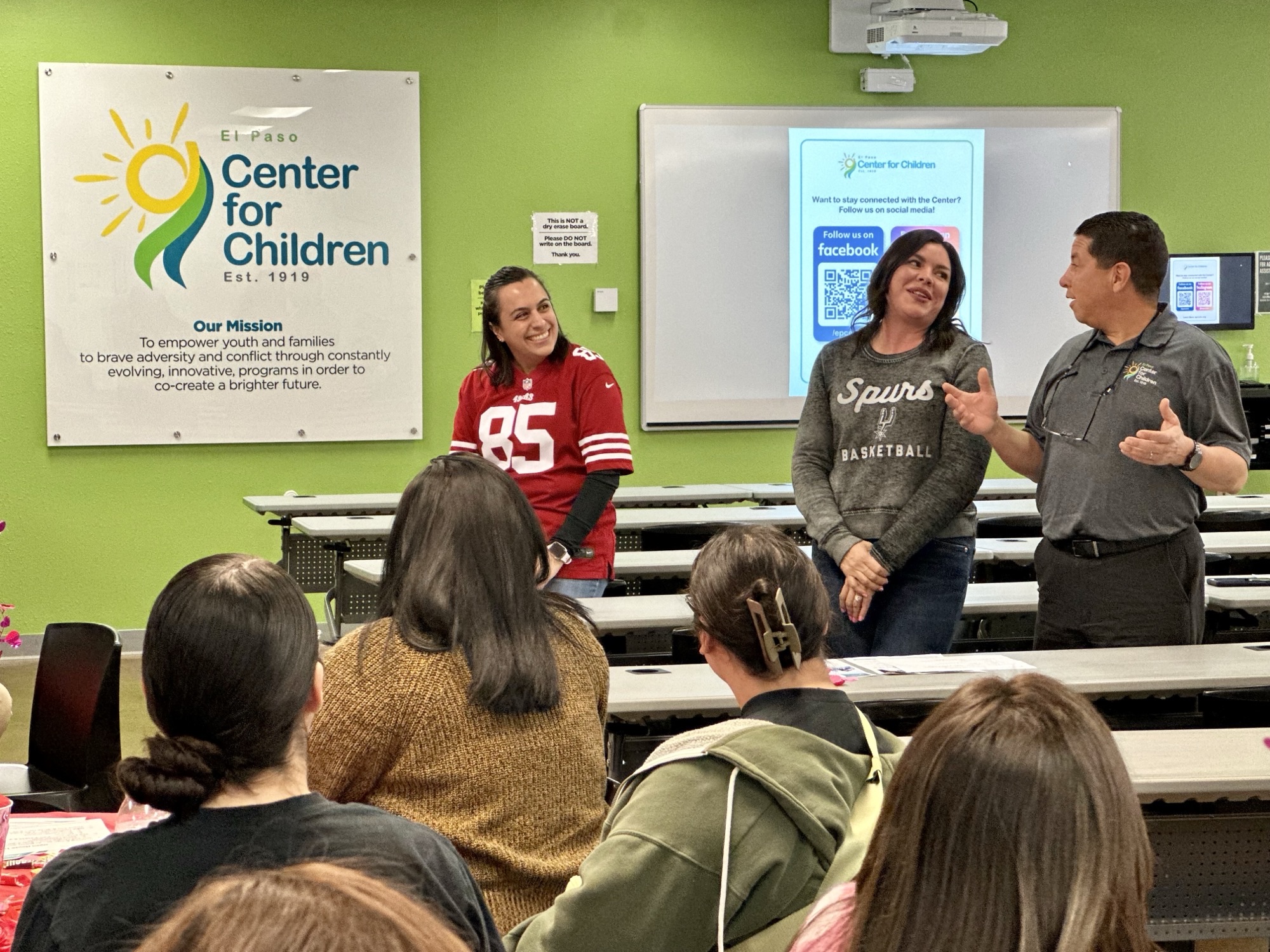
Kars4Kids: Can you walk us through your Early Childhood Services: HOPES, Parents as Teachers, The Incredible Years, or Circle of Security Parenting? What each offers, and how they support parents of children from birth to age five?
Adrian Duran: We provide early childhood intervention programs for families with kids aged newborn to 5 years old. I have three kids of my own and when describing this program I often refer to the manual that parents “Do Not” receive at the hospital when a child is born. Everyone can use that extra help when raising a child, and that is what these services help provide.
Our HOPES Behavioral Health Services add support when a family’s needs stretch beyond parenting. Therapy is provided through Eye Movement Desensitization and Reprocessing (EMDR), Trauma-Focused Cognitive Behavioral Therapy (TF-CBT), or Theraplay. The Parents as Teachers program offers individual parenting classes to expectant parents and families with children from birth to five, focusing on child development and school readiness. The Incredible Years program provides group classes for parents who want to learn or improve their skills during the most important developmental years. Circle of Security Parenting is an eight-week program designed to strengthen the attachment bond between parents and their children. Classes are available in person and virtually, and families also receive access to case management, basic needs assistance, and behavioral health support when necessary.
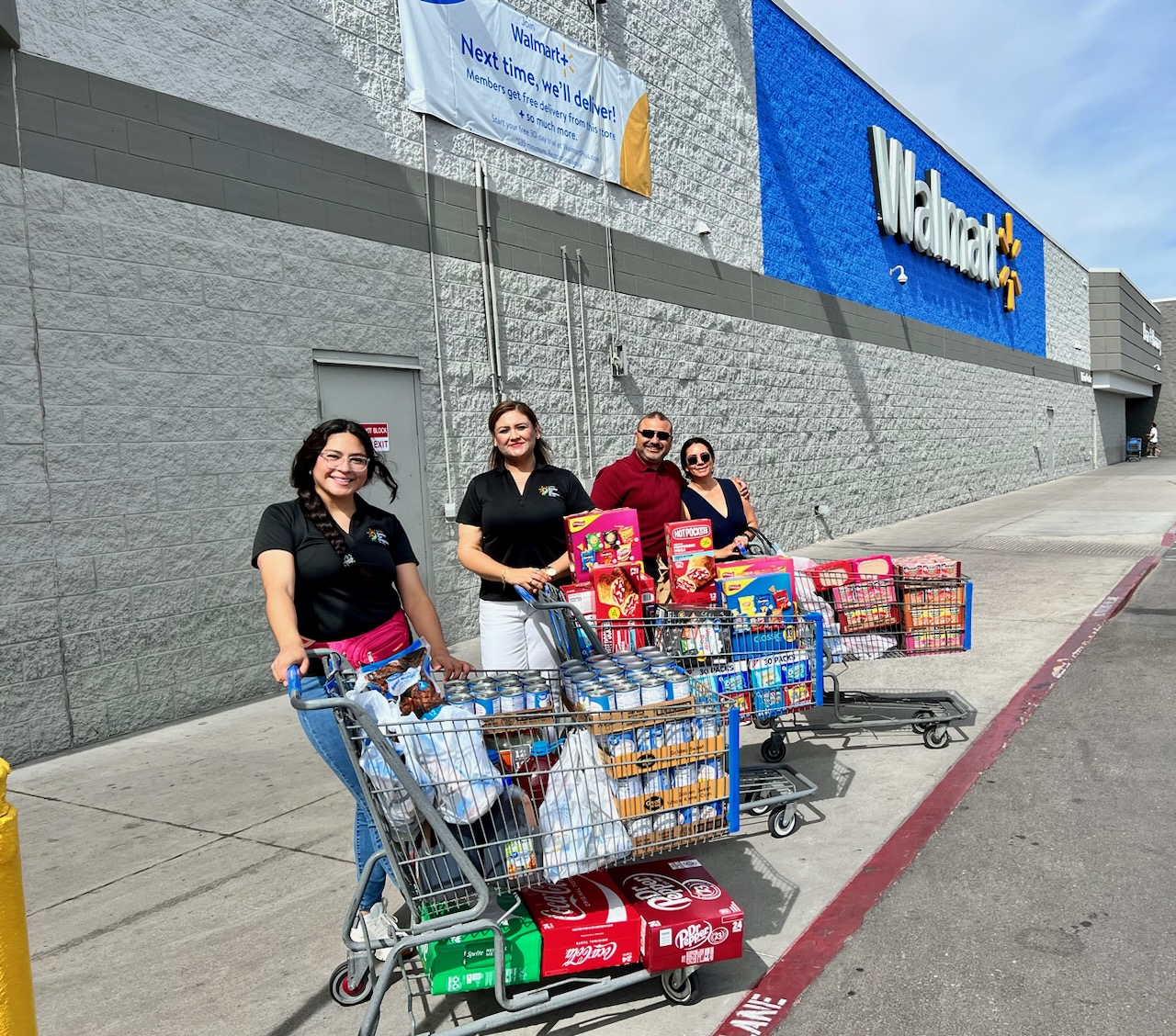
Kars4Kids: Tell us about your Youth Outreach & Housing initiatives. Who is eligible and what supports do you offer the participants?
Adrian Duran: The El Paso Center for Children has the only shelter in the region for homeless youth and runaways aged 11-17. The Shelter has operated on a 24-7 schedule for the past 36 plus years. Historically, the shelter is what the Center is most known for in the community. While the hope is that the stay in our shelter for youth is a short one, there have been instances where a youth has been with us for up to 90 days. The Center staff do their best to reunite youth in our care with next of kin as expeditiously as possible while keeping in mind the health and safety of the child.
Youth and young adults between 11 and 24 who live in El Paso County can receive services. We provide immediate support for those experiencing stress, trauma, or upheaval. Along with access to emergency shelter, food, clothing, personal care items, showers, and laundry facilities, youth also have access to phones, computers, crisis intervention, and survival tips.
For longer-term success, we offer counseling and mediation with families, help obtaining identification or health care, job readiness training, education support, and housing referrals. For young adults ages 18–24 who are experiencing homelessness, we provide rental assistance for six to 18 months, depending on eligibility and funding. Case management and support services are available for all participants, and our programs are inclusive and respectful of everyone.
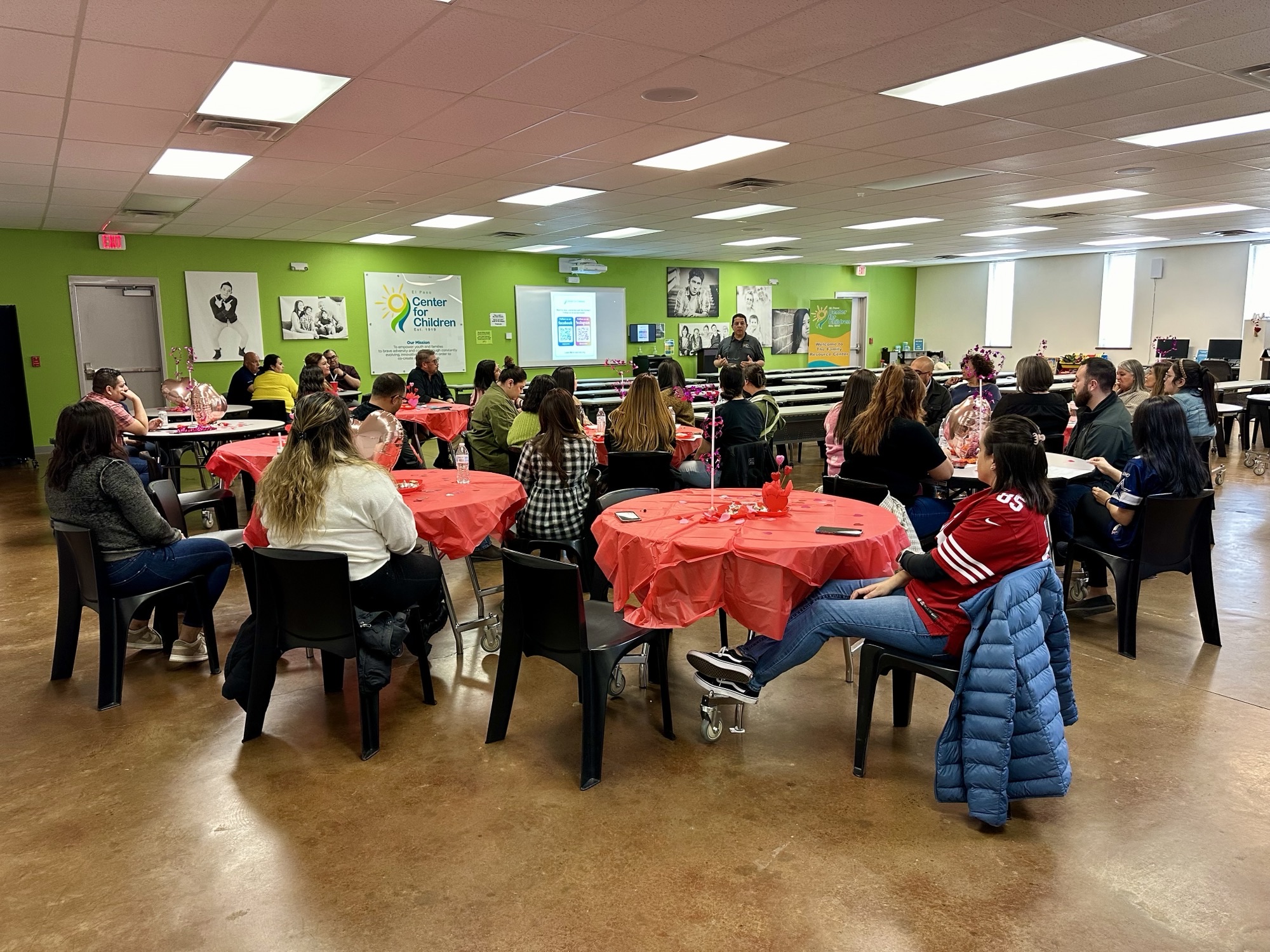
Kars4Kids: Could you explain how your Drop-In Center operates—its harm reduction approach, and the kinds of immediate support you provide to youth at risk of or those surviving sexual exploitation or homelessness?
Adrian Duran: We have the first and only Drop-in Center in the El Paso region that specializes in serving youth who are at risk of and/or experiencing commercial sexual exploitation/human trafficking. One thing that we have learned is that homeless youth and young adults have to be ready for help before it is provided and we have to meet them where they are. That is where our Drop-In Center comes in and plays a vital role for those who choose to remain on the streets or other homeless situations. Our Drop-In Center is exactly as the name implies, a place where young adults can “Drop-In” and use our facilities for a warm meal, a shower, to do a load of laundry, or simply rest and watch T.V. for a bit before they head back out.
The Drop-In Center helps provide for immediate needs, including safety planning, crisis counseling, and opportunities for engagement in services for youth who are likely at risk of and/or survivors of sex trafficking. Available 24/7 via our youth hotline, we are able to provide immediate crisis intervention and pick up any youth between the ages of 11-24 who are at-risk or victims of trafficking, homelessness, runaway, or other unsafe living conditions that place youth at risk of sexual exploitation. Beyond connecting youth to immediate needs (showers, washing clothes, food, clothing, rest, etc.), we can help connect youth to case management, counseling, advocacy, and many other services through our community partners.
At the Drop-In Center, youth can also receive case management, access to emergency and long-term housing, food and clothing, phone use, health and wellness education, counseling, hygiene products, outreach services, and referrals. They have access to a quiet resting room, computer use, transportation support, and even emergency storage for their personal items.
Our primary purpose is to meet youth where they are at, without judgment, removing stigma, and supporting them throughout their journey.
Kars4Kids: Can you give us an overview of your Fatherhood Program? What is the goal of this program?
Adrian Duran: Our Fatherhood Program is the newest program for the Center, and it plays a vital role since the majority of our services are accessed and utilized mostly by moms. The Fatherhood Program is a great resource for all fathers and father figures alike.
Super Dads = Super Families! If you are a father, stepfather, or father figure, we have new classes designed to help good dads be even better! Our Fatherhood Program is for those expecting their first child up until their child turns 18 years old. It’s free and available in English and Spanish to any member of the El Paso community!
Super Dads = Super Families! If you are a father, stepfather, or father figure, we have new classes designed to help good dads be even better! Our Fatherhood Program is for those expecting their first child up until their child turns 18 years old. It’s free and available in English and Spanish to any member of the El Paso community! Learn more about financial security and upward mobility. Bond with your kids and family at a deeper level. Discover how to be an even better father!
Who can receive services? Fathers, stepfathers, grandfathers, coaches, or father figures expecting their first child up until their child turns 18 years old. They must reside in El Paso County.
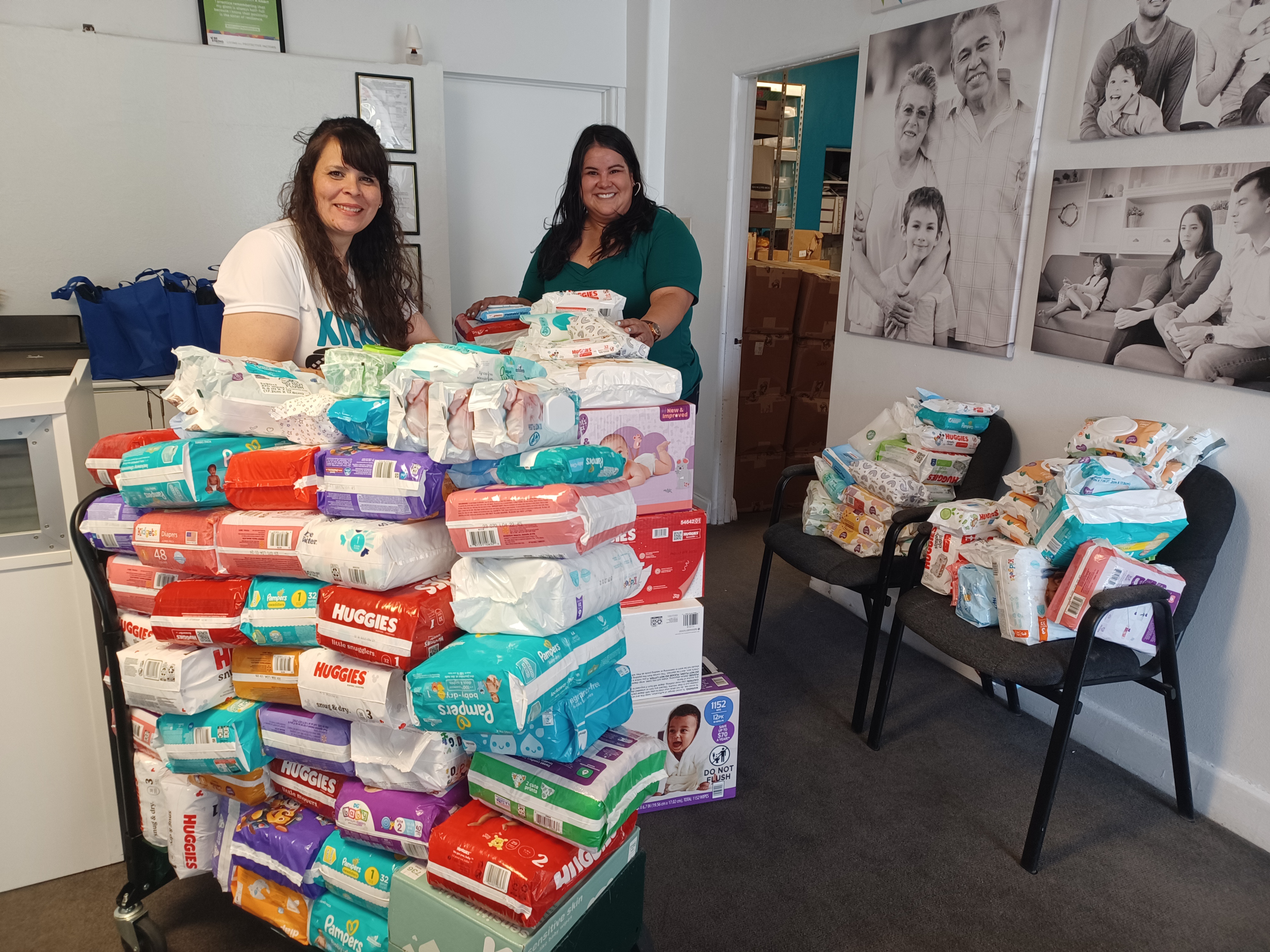
Kars4Kids: How do your counseling and life-skills services assist youth and families? What kinds of challenges do these services address, and how are sessions structured?
Adrian Duran: Our Counseling services are provided predominantly via our Family and Youth Success (FAYS) Program, which is one of our larger programs in terms of budget along with our HOPES Program. The FAYS Programs is available to families with youth ages 6-17. We work closely with many schools in our community where we can make services available directly on campus as well as through direct counseling at our campus location. We have built a great reputation over time and often get referrals for our services from school counselors or others in the community working directly with families with children.
Most people struggle sometimes with life’s challenges and experiences, such as anxiety or depression, conflict at home, bullying or other problems at school, anger management, behavior problems, parenting challenges, running away, grief/loss, and unique traumatic experiences. Counseling can take place in person or online. Evening appointments are available. You work with the counselor to determine how often you will meet and for how long.
Kars4Kids: Can you describe your Family Resource Center? What services and supports do families and children—from young kids up to teenagers—receive there?
Adrian Duran: We are fortunate that funding from our FAYS Program has extended to allow for us to have a Family Resource Center on campus where we are able to offer programming to youth and families. Our programming in the Family Resource Center has included cooking classes, movie nights, reading nights, yoga classes and many other fun filled events open to the community at large.
Adrian Duran: We are fortunate that funding from our FAYS Program has extended to allow for us to have a Family Resource Center on campus where we are able to offer programming to youth and families. Our programming in the Family Resource Center has included cooking classes, movie nights, reading nights, yoga classes and many other fun-filled events open to the community at large.
The most important thing in life is family—that’s why the El Paso Center for Children created the Family Resource Center! The Family Resource Center (FRC) is a place of support, where opportunities and services are designed to help families become strong and successful. The FRC offers services and activities that educate and develop skills. Enrollment is free for families, and we are open Monday through Friday from 8:30 am to 5:30 pm. Whether you prefer English, Spanish, or Spanglish, we’ve got you covered!
The services available include parent education, child development activities, a resource library, help finding services, help with basic needs, guest presentations, and more. For kids ages 6 to 17, counseling is also available to help with bullying, vaping, fighting, and more.
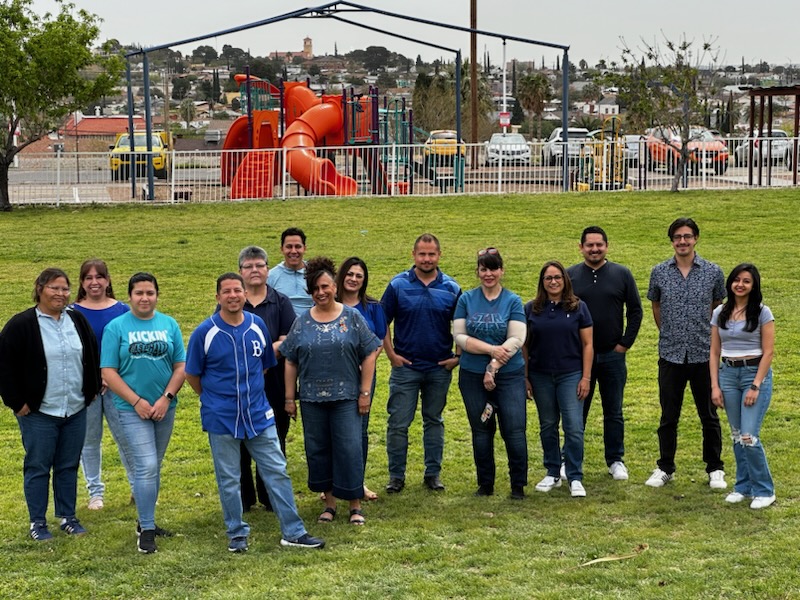
Kars4Kids: Talk to us about the Family Advisory Council. What does the council do and what is its purpose and ultimate goal? Is the advisory council open to everyone?
Adrian Duran: At El Paso Center for Children, we embrace parents and caregivers as true partners. The Family Advisory Council (FAC) is a group of parents and caregivers who empower themselves and others as agents of community change. The purpose of the Family Advisory Council is to provide a community perspective on the promotion of family well-being, knowledge of the five protective factors that keep families strong, and bringing community input to programming with regards to gaps in services.
The ultimate goal of the FAC is to bring community stakeholders to the table in a collaborative effort to strengthen families and reduce the number of children entering the child welfare system. FAC members are parents/caregivers who volunteer from the military and Latino communities, advocating for their families and the community. Members participate in a variety of projects to include hosting parent cafés, community needs surveys, and a public awareness campaign.
Duties include respecting and considering other people’s opinions, participating in at least 8 out of 12 monthly meetings, suggesting ideas and agenda items, planning activities such as Parent Cafés or holiday celebrations, taking part in leadership and advocacy training, and representing FAC to the community. We value our Family Advisory Council members! Meetings are held monthly, and participants may be eligible to receive an incentive for their contributions.
Duties include respecting and considering other people’s opinions, participating in at least 8 out of 12 regular monthly meetings and other subcommittee meetings as needed (please note that the schedule is subject to change due to the availability of volunteers and holidays), suggesting ideas and agenda items, planning activities such as Parent Cafés or holiday celebrations, taking part in leadership and advocacy training, and representing FAC to the community. We value our Family Advisory Council members! Meetings are held monthly, and participants may be eligible to receive an incentive for their contributions.
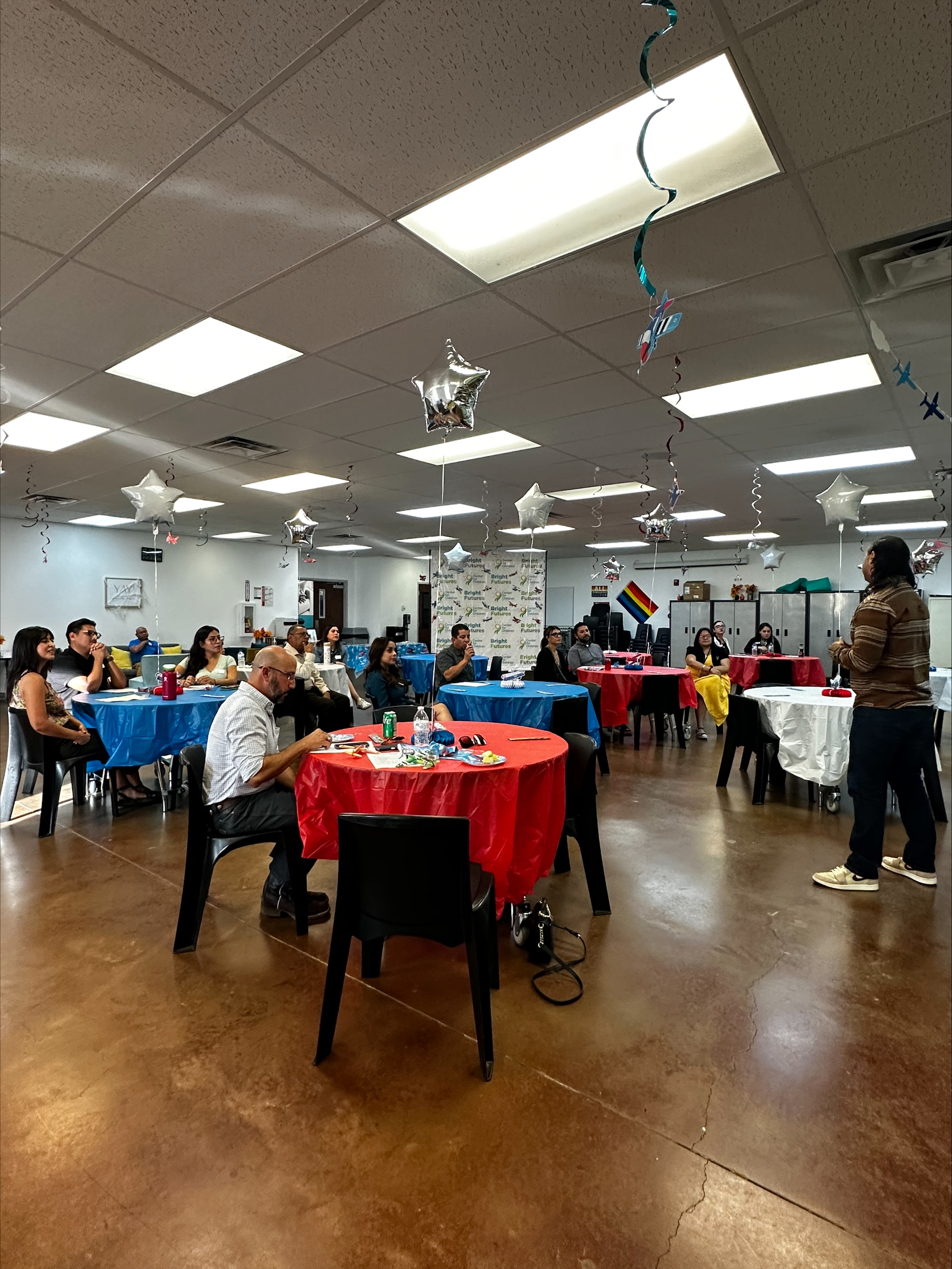
Kars4Kids: Can you give us an overview of your Strong Families initiative and describe for us how this program builds community and supports family resilience?
Adrian Duran: The Strong Families initiative was a 5-year pilot program that the center was a part of, along with 5 other communities in the country. The Program finished a few years ago, but one of the most important aspects of the program were Parent Cafes. Parent Cafes serve as a peer-to-peer type of programming that helps parents build stronger families via the five protective factors. While the Strong Families initiative ended, the Parent Cafes continue and have been built into our other programs very successfully, to include our HOPES and Fatherhood programs.
Every family can get stronger! Parent Cafés are small group gatherings to deliver training content and provide support. Cafés focus on building and promoting five protective factors to reduce risk and create optimal outcomes for children, youth, and families. These include parental resilience, social connections, knowledge of parental and child development, concrete support in times of need, and social and emotional competence of children.
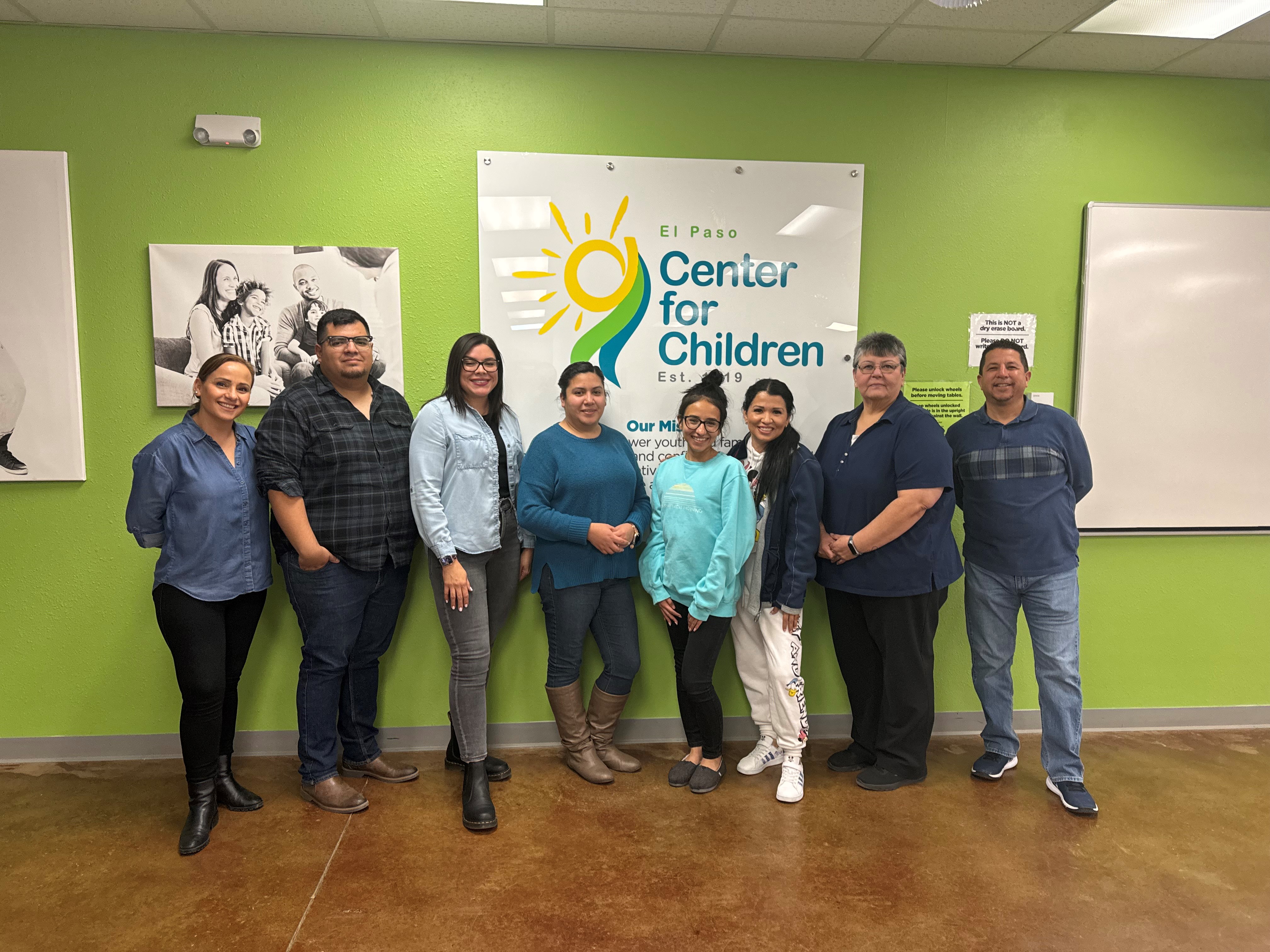
Kars4Kids: And finally, looking ahead—what’s next for the Center? Any new programs, expansions, or shifts in focus that you’re excited to share?
Adrian Duran: As always, the Center is looking towards the future with an eye on innovation! While nothing is certain, especially in this era of funding for nonprofits, applications have been submitted that can potentially bring new services to the Center. Stay tuned to our website at www.epccinc.org for future developments.